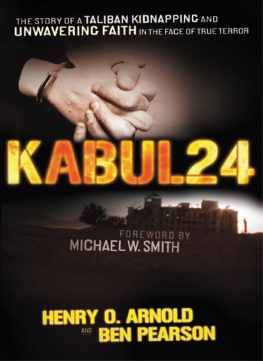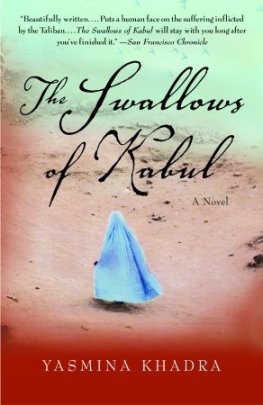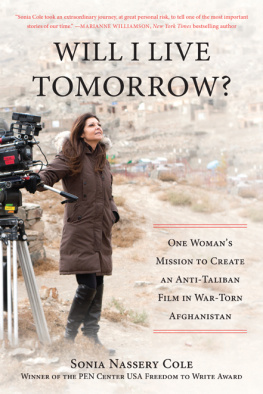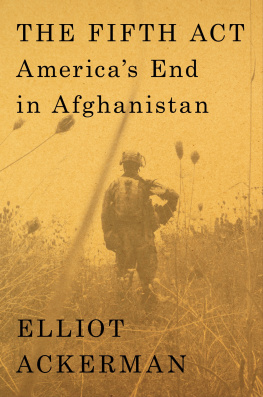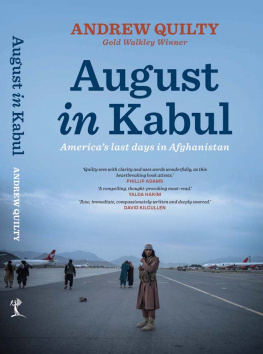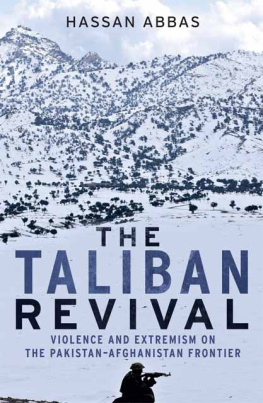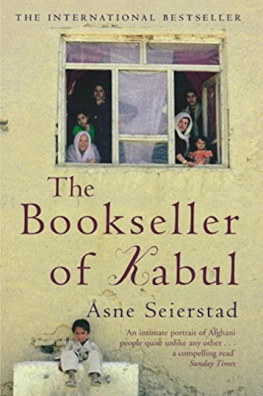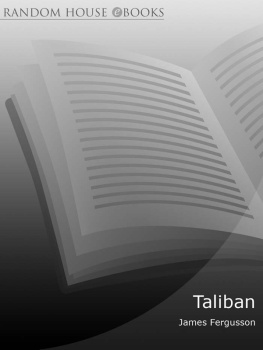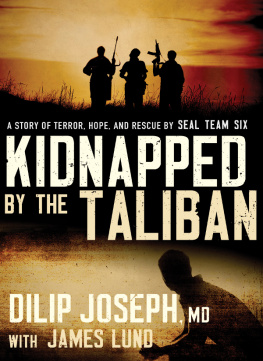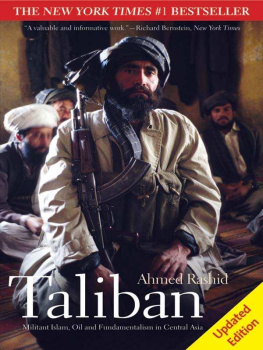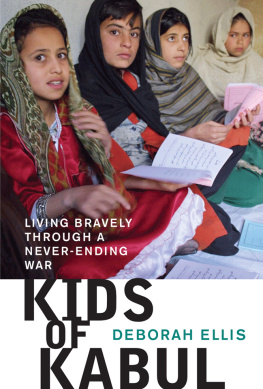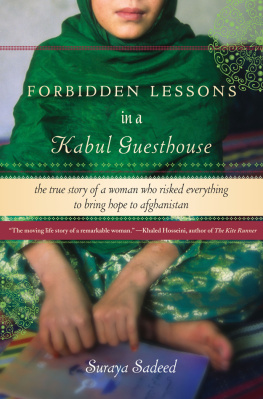2009 by Henry O. Arnold and Ben Pearson
All rights reserved. No portion of this book may be reproduced, stored in a retrieval system, or transmitted in any form or by any meanselectronic, mechanical, photocopy, recording, scanning, or otherexcept for brief quotations in critical reviews or articles, without the prior written permission of the publisher.
Published in Nashville, Tennessee, by Thomas Nelson. Thomas Nelson is a trademark of Thomas Nelson, Inc.
Ransom Song and In the Shelter of Your Presence 2001, Silke Durrkopf. Reprinted with permission.
Thomas Nelson, Inc., titles may be purchased in bulk for educational, business, fund-raising, or sales promotional use. For information, please e-mail SpecialMarkets@ThomasNelson.com.
Unless otherwise noted, Scripture quotations are taken from THE NEW KING JAMES VERSION. 1982 by Thomas Nelson, Inc. Used by permission. All rights reserved.
Scripture quotations marked NIV are from HOLY BIBLE: NEW INTERNATIONAL VERSION. 1973, 1978, 1984 by International Bible Society. Used by permission of Zondervan Publishing House. All rights reserved.
Library of Congress Cataloging-in-Publication Data
Arnold, Henry O., 1966
Kabul 24: the story of the Talibans capture and imprisonment of eight western aid workers in Afghanistan six weeks before September 11, 2001 / by Henry O. Arnold and Ben Pearson; foreword by Michael W. Smith.
p. cm.
Includes bibliographical references and index.
ISBN 978-1-59555-022-4 (alk. paper)
1. Shelter Now (Organization) 2. Taliban. 3. Humanitarian assistanceAfghanistan. 4. Political prisonersAfghanistanBiography. 5. AfghanistanHistory2001 I. Pearson, Ben. II. Title. III. Title: Kabul twenty-four.
HV589.A766 2009
958.104'7dc22
2009028898
09 10 11 12 13 RRD 6 5 4 3 2 1
Information about External Hyperlinks in this ebook
Please note that footnotes in this ebook may contain hyperlinks to external websites as part of bibliographic citations. These hyperlinks have not been activated by the publisher, who cannot verify the accuracy of these links beyond the date of publication.
For the Kabul twenty-four, whose faith was tested
in the extreme. They are an inspiration to us all.
Contents
I remember vividly hearing the news in August 2001 about some aid workers for Shelter Now International being kidnapped by the Taliban and held hostage in Kabul, Afghanistan. Word spread quickly throughout America and around the world that the plight of eight Western missionaries and their sixteen Afghan coworkers was very grave. It was a unique time in church history, when the prayers of believers all over the world were unified for one great cause. The incredible story of these hostages captured international attention and became a defining moment in the body of Christ.
This gripping story is filled with miracles and answered prayers and is beautifully told by Henry O. Arnold and Ben Pearson in this book and in the film of the same title. It is a story of a few courageous individuals who heard a particular call of God to go to a remote part of the world to serve a displaced people. It is a story of individuals going through the fire; of their faith tested in the extreme; of a dangerous journey so powerful that I believe it will capture your heart and soul in the same way it did mine.
In KABUL24, Gods grace and provision is played out in one of the most unique settings you could ever imagine. This true story is a reminder that God hears and answers our prayers even in unusual situations that appear hopeless. It is my prayer that the story of these precious people told in this book and in the film will inspire believers around the world to listen for their own call of God... and respond.
Michael W. Smith
July 2009
O ur primary source material consists of raw film footage shot by Ben Pearson of interviews with the SNI hostages from 2003 through 2005. We also relied on Eberhard Muehlans Escape from Kabul (Sydney: Strand Publishing, 2003), a collection of interviews with the former hostages conducted in 2002 and our source material for letters and court documents, which in some cases were translated from Pashto to German to English.
We gratefully acknowledge Georg Taubmann, for his permission to reprint his prison letters, and Silke Durrkopf, for her permission to reprint lyrics to two songs, Ransom Song and In the Shelter of Your Presence.
Conditions in Afghanistan continue to be dangerous, in some areas, for Afghans who work for Western organizations. Because of this, the names of all the Afghan SNI workers mentioned in this account have been changed to protect their identities.
T he thick, blue cotton fabric was little protection from the sting of the whips and the blunt strikes from the wooden rods on her body as she stumbled along the dusty streets of Kabul. Covering her from the crown of her head down to the tips of her bare toes, the burka was designed by law for her protectionprotection from the roving, lustful eyes of other men, protection from the evil influences of the outside world. She could never enter that expansive outside world; it would always remain a mystery, although sometimes she allowed herself to imagine it. Inside the burka, she was anonymous to all who might care to know her; anonymous to those she might care to know toono physical marks made visible to distinguish her beauty, no bright smile to share with others, no voice to speak to her character. She was simply a burkaa living, vibrant human being reduced to an animated sack, a tented Cyclopsand today nothing could protect her. No one came to her rescue. No one offered to hold her blistered, swollen hands or bathe her bloody, raw feet. Alone, contained by her burka and herded through the street, she did not bother to cry for mercy. She knew such cries were meaningless to hearts hardened by the strict adherence to brutal sharia law.
Only young girls and old women were exempt from the law of the burka. Women bound by the law wore the burka outside the home at all times to conceal identity and make recognition impossible. The nameless, faceless burka was never to wander the streets alone. If she were married, then the husband would accompany her; if single, a male member of her family would escort her. Her brief public forays outside the house were to the market or the home of another burka. The religious foibles of her husband kept the burka on edge. If she did anything to displease him, her position was in jeopardy. If the burka committed any infraction against sharia law and thus brought shame upon her family, she faced possible expulsion from her home. There were no educational opportunities for her, either. A Taliban fatwa cited the education of women as a source of seduction and depravity. The burkas place in society was that of property, totally dependent upon the interpretation of the law by the whim of the dominant male in her life. For those unmarried or widowed, the rules of the Taliban could be fatal. They had no means, no way to take care of themselves, and sharia law kept them in perpetual house arrest. It was no wonder that frequently a

